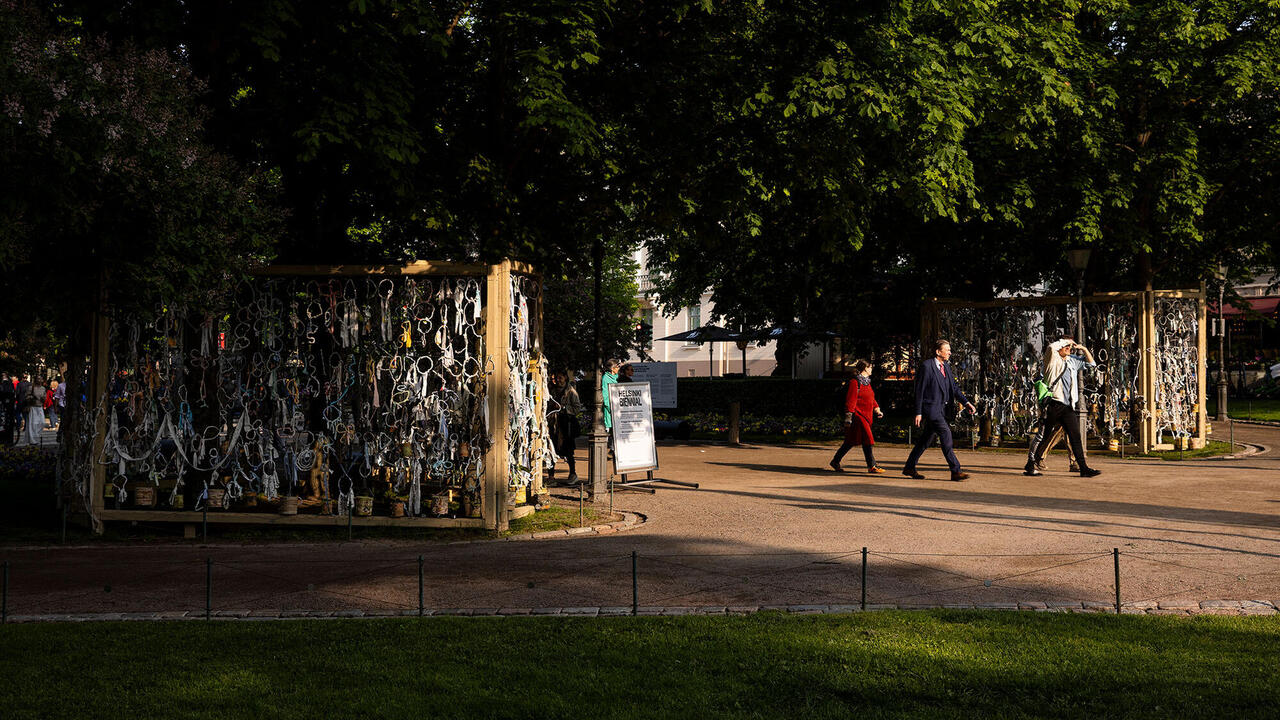Books
Ventriloquism, collaboration and translation in recent poetry publications
Ventriloquism, collaboration and translation in recent poetry publications

‘How beneficial it would be […] to gain a vision of the irreducible differences which a very remote language can, by glimmerings, suggest to us,’ wrote Roland Barthes in Empire of Signs, his 1966 tribute to the idea of Japan. This observation, translated from the French by Richard Howard in 1983, comes in the middle of Christian Hawkey’s newest poetry collection, Ventrakl (Ugly Duckling Presse, 2010). This is not surprising in itself: the ‘remote language’ Barthes speaks of can be understood literally as a foreign tongue, just as it might be construed as the language of poetry itself – ever remote from everyday life, even as it glimmers at its perimeters. In the case of Ventrakl, however, Barthes’ line takes on a larger meaning. This beguiling book bills itself as a ‘[collaboration]’ between the American poet and the celebrated Austrian Expressionist man of letters Georg Trakl. The latter, of course, has been dead a century, and, as Hawkey points out in his book, at the time of its writing he did not understand German.
Tellingly, Ventrakl’s title inspires a rush of associations: ventriloquism, ventricle (its homophonic translation), Trakl’s name and, weirdly enough, ‘ven aquí’, or ‘come here’ in Spanish. This last meaning is clearly of my own devising, and yet it is Hawkey’s own fast and loose approach to the translatory mode that set me on that associative path. For it is the idea of translation, in all its multivalence, that is investigated here. As ‘Trakl’ hilariously tells Hawkey in one of the interviews that punctuates the book’s verses, prose poems, biographical sketches and photographs, ‘Don’t be so literal. You’ll never get anywhere.’
Thus the methods of translation that Hawkey applies to Trakl’s oeuvre include the traditional, the computer-generated and the homophonic (Hoffnungslosen, or ‘the hopeless’, becomes, evocatively, ‘rough, loose nuns’); translation by gun (‘shooting, with a 12 gauge, an open Trakl book from a distance of ten feet, then translating, with a dictionary, a remaining page of perforated text’) and pickling (Hawkey left a Trakl book in a water jar until the pages ‘dissolved into words … rearranging themselves’). Actualized or not, these last two methods – witty, desperate and inspired – recall the restless works of Chris Burden and Tony Conrad, likewise attempts to gain ‘a vision of the irreducible differences’ when they had themselves shot or pickled film in a jar.
Ventrakl is beautifully paced and brilliantly drawn. Yet, despite its formal variety, it often feels like Hawkey is simply trying to get a handle on Trakl’s inimitable autumnal atmospherics, from the herald of war to the dark hum of forests and their colour-coded referents: red deer, black wind, brown children, green silence. At times the book recalls a studied fan letter taken to outsized proportions – which might be an act of translation in itself.
But if translation is ‘an art that involves the re-creation of a work in another language for readers with a different background’, as critic Malcolm Cowley once said, Monica Youn’s odd, shimmering Ignatz (Four Way Books, 2010) might be understood as equally translation-minded. Youn’s subject is George Herriman’s Krazy Kat comic strip, which appeared in the usa from 1913 to 1944. Set in a cactus-strewn Arizona, the comic delineates the unreciprocated love of Krazy for Ignatz Mouse, who often lobs bricks at the cat’s head. More striking, however, is the poetic American patois in which Krazy waxed love and philosophy. ‘Why is “language” Ignatz?’ Krazy asks in an early comic. ‘“Language” is, that we may understand one another,’ Ignatz responds. ‘Can you unda-stend a Finn or a Leplender, or a Oshkosher, huh?’ ‘No.’ ‘Can a Finn, or a Leplender, or a Oshkosher unda-stend you?’ ‘No.’ ‘Then, I would say, language is, that we may mis-unda-stend each udda.’
Youn draws on that ‘mis-unda-stending’ in its most celebrated artistic form: unrequited love. She takes the poetic potentiality of Krazy’s devotion for her gorgeous poems, which one more than suspects only use the love object Ignatz as a cover. No matter: it is this palimpsestic approach – Herriman’s strangely brilliant oeuvre shimmering up through Youn’s lovelorn lyrics – that gives her book its meaning. Like Hawkey, she quotes her subject at will: ‘For tonight I am a window / in a cottage by the sea,’ goes her willowy poem ‘Letter to Ignatz’, spinning a comic in which Krazy sings, ‘For tonight, I emma widow – inna kottidge by a sea.’ The layers of translation here run deep, as the lyrics themselves are gleaned from a 19th-century Ozarks folk song. Elsewhere, Youn infuses Herriman’s sketchy, black and white desert with the vivid erotics of her project: ‘The rawhide things of the canyon straddling the knobbled blue spine of the sky.’
If Ventrakl and Ignatz undertake the translation of a specific body of work, Kathleen Graber’s The Eternal City: Poems (Princeton University Press, 2010) is slightly larger in scope. Her affecting, studious collection converses with the canon of western philosophy: Augustine, Aurelius, Benjamin, Barthes – and that’s just the first two letters of the alphabet. Her titular city is both Rome, which her beloved Aurelius presided over, and, more abstractly, the profane, ever-less-classical present, which is presented as a kind of metaphoric city of beautiful, crumbling edifices shadowing a blander, if more blinding, suburban architectonics. But if Rome signifies loss, so does the present day of her poems, which brim with departed relatives, lost childhoods, a domestic reliquary like the ‘junk drawer behind the stove’. In long, careful lines that unfold deliberately across the page, Graber attempts to translate the lessons of our philosophical forebears for our contemporary experience, while continually coming to grips with the idea that ‘If you live / long enough, you realise that you are not / the person you were.’
Glosses of Aurelius’s late Meditations infuse a cycle of poems that follows the speaker as she cleans out a house, cataloguing its contents. Reflecting Aurelius’ Stoicism, Graber’s tone is stoic in the extreme, though at times she breaks into poetic flight: ‘Loneliness, our one defendable empire. Aurelius, too, / loved metaphors: the inland lake on the island Aenaria; in that lake, / there is another island, it, too, inhabited. O, my acrobats, in the dark / capital of nested boxes, be with me always, secure & tumbling.’ And: ‘Your words, Aurelius, have found me, / but you could not.’
This lament seems to echo across all three books, and through all attempts at translation. Your words, Trakl, and yours, Ignatz, have found me, but you have not. What is this other language? Furthermore, what is this loss with which it confronts us? At once tribute and tributary to a larger body of work, it appears that translation is, like poetry itself, only the beginning of understanding the remote worlds that beckon. Or, as Henri Michaux put it (in a translation by Richard Sieburth) in the epigraph that begins Hawkey’s Ventrakl: ‘Grasp: translate. And everything is translation at every level, in every direction.’
















